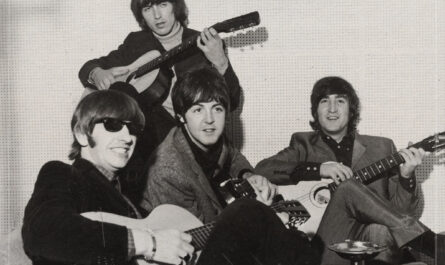Trivium frontman Matt Heafy recently opened up about the harsh treatment his band faced early in their career. He shared his thoughts in an interview with Louder Sound.
Heafy reflected on how the metal scene has evolved, particularly for younger bands entering the industry today.
“It’s a good time to be playing heavy music, man. It’s a good time to be a younger band, too,” he said. “You’re not having to deal with as much of the bullshit that we had to deal with: there’s not this intense ostracisation, this intense cliquiness.”
The guitarist and vocalist went on to describe the violent and hostile environment Trivium encountered during their rise.
“When we were coming around, we were getting glass bottles thrown at our heads, fans waiting for us outside of our van to try to fight us because they didn’t like the kind of music we played, getting bullied to our faces by our favourite bands,” he continued. “That doesn’t happen anymore as much [to young bands].”
Heafy’s comments highlight a shift in the metal community’s treatment of emerging artists.
Trivium endured particularly intense hostile treatment during the mid-2000s, following the release of their breakthrough album Ascendancy in 2005. The backlash lasted for approximately nine to ten months. It was especially severe in the U.K., where the press hyped them as the “new Metallica,” fueling resentment among established bands and fans who felt the young group hadn’t “paid their dues.”
MetalSucks reported that the bullying extended beyond verbal harassment to bizarre power plays. One incident involved a tour manager who reportedly forbade another band, Seemless, from eating until Matt Heafy ate first. The social dynamics on tour became openly hostile, with Trivium facing exclusion and mockery from bands they had once idolized.
The situation was particularly brutal during Ozzfest. Loudwire noted that crew members would deliberately cut them off with golf carts and shoot dust in their faces, creating an environment of constant intimidation. Heafy also recalled a favorite singer from another band publicly ordering a live reviewer to remove a Trivium shirt from his face and replace it with their own band’s merchandise. This demonstrated the visible scorn they faced in public media.
Ultimate Guitar explained that the animosity stemmed largely from Trivium’s rapid success and the perception that they were young upstarts who had not earned their position through years of struggle. At just 18 years old, the band members found themselves thrust into the spotlight. They faced backlash from both the metal establishment and certain segments of the fanbase who viewed them as overrated newcomers.
Despite the intense hostility they faced, Trivium persevered through the difficult period. They went on to establish themselves as one of modern metal’s most respected acts, proving their critics wrong through decades of consistent output and dedication to their craft.





